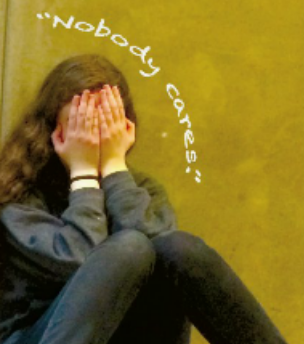Taking mindful steps
Mental health movement spreads awareness online.
December 10, 2015
This week’s push by Buzzfeed to raise awareness and education surrounding mental health is leading to further discussion and understanding of this often negatively-perceived issue.
“Mental Health Awareness Week serves as a platform to bring attention and conversation to a very important topic,” Jessica Lobedan, Director of Community Relations at the San Francisco chapter of National Alliance on Mental Illness, said. “Mental illness is still incredibly stigmatized in our society.”
Common misconceptions of people with mental health problems are that they are dangerous or uncomfortable, fostering discrimination, according to Mentalhealth.gov. When such stigma exists, individuals are labelled by their illnesses and can feel shame while receiving poorer treatment.
Buzzfeed is featuring articles and videos created by individuals with mental illness in order to create “a shift from seeing depression, anxiety, and other disorders as shameful personality flaws, and toward understanding them as the illnesses they are.”
“Buzzfeed has made a lot of videos about depression and suicide, ADHD and OCD, a spectrum of mental illnesses,” senior Jennifer Quillen, co-president of the Untitled Project club, which aims to raise awareness for this cause, said. “I think it’s good since the site has so many people going onto it.”
Thirteen to 20 percent of children living in the United States experience a mental disorder, and these rates are increasing, according to a Centers for Disease Control and Prevention.
Mental Health Surveillance Among Children survey.
“The teenage years can be very stressful, challenging, and emotional,” Lobedan said. “It is so important that mental health is not stigmatized so that young people feel comfortable seeking help. There is nothing embarrassing or shameful about seeking help.”
Lobedan says that students can help end stigma by starting informed conversations about mental health issues and sharing resource links on social media.
“Mental health is being brought more to the surface, and recently I’ve heard more people coming out about talking to therapists,” sophomore Natalie Scheele said. “If it’s talked about more, it’s less weird, and we’ll be more open about it.”
Other ways to combat negative perceptions of mental health issues include not bullying or stereotyping others as well as incorporating mental health as part of a school’s health curriculum, according to Lobedan.
“Mental illness is still taboo to talk about, which is sad because so many people in America, in the world, have mental illness, “ Quillen said, “Some don’t even know about it.”










